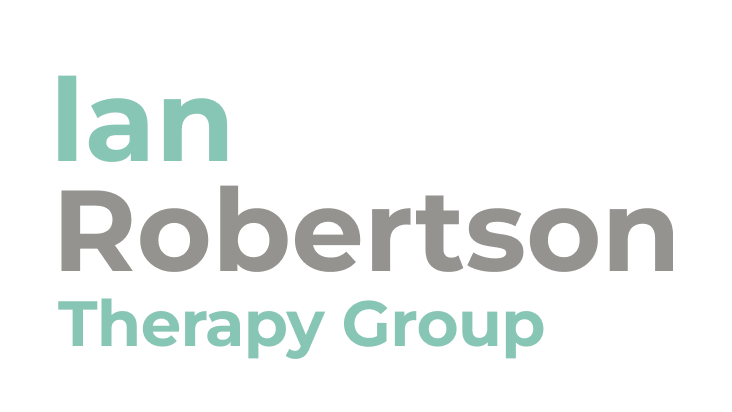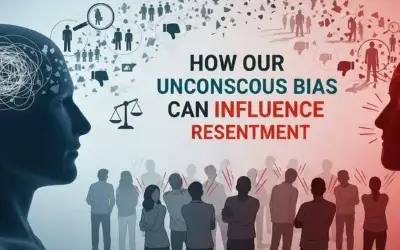
Introduction
Do you ever feel stuck when faced with a decision, unable to choose a path forward? For many people, making even simple choices can feel overwhelming. Indecisiveness often comes from fear of making the wrong choice, self-doubt, or a need for perfection. At Ian Robertson Therapy Group, we often hear from clients who feel paralyzed by decision-making and exhausted by overthinking. This blog will guide you through understanding why indecision occurs, what keeps it in place, and how to start building confidence in your ability to make choices. By the end, you will see that every decision is a step forward, not a trap.
Why Decision-Making Feels So Hard
Indecisiveness often comes from fear, self-doubt, or an overreliance on researching the “right” answer. The fear of making the wrong choice can leave you searching endlessly for certainty, only to become more anxious and confused.
Some common thought patterns might sound like:
- “Is this the right decision?”
- “What would you do?”
- “I really don’t know what I should do.”
This cycle creates paralysis. Instead of focusing on what you truly want, you may focus only on avoiding the worst possible outcome. Over time, this keeps you stuck in worry rather than moving forward with confidence.
The Role of Mindfulness in Decisions
Anxiety often hijacks the decision-making process. When fear takes over, the brain’s natural response is to become rigid and reactive. Practicing mindfulness can strengthen the prefrontal cortex, the part of the brain responsible for planning and problem-solving, and reduce fear-based reactions.
When you calm the mind and create space for reflection, you are more able to focus on what you want rather than what you fear. For more guidance on calming anxious thought patterns, explore our resource on anxiety and depression support.
Fear of the Wrong Choice
One of the biggest barriers to making a decision is the belief that there is a “right” and “wrong” choice. In reality, there is no one absolute way, and most decisions are simply different paths based on each unique situation. Each one will lead to learning, growth, and new experiences. Instead of chasing perfection, it helps to recognize that every decision offers an opportunity to grow.
If you find yourself stuck between two choices, remember that neither path is wrong. What matters most is your ability to build confidence and resilience as you move forward.
Self-Doubt and Low Confidence
Have you ever avoided making a choice because you felt incapable or feared a bad outcome? Low confidence can fuel indecision, making even small decisions feel overwhelming. This cycle builds more self-doubt over time.
A helpful approach is to strengthen internal commitment language by “acting as if”. Start telling yourself, “Whatever decision I make will be fine.” The more you practice making decisions, the more your confidence and self-efficacy will grow. Over time, you will believe in your ability to choose and trust yourself.
The Trap of Perfectionism
Perfectionism can make decision-making nearly impossible. When you demand the perfect choice, you end up overthinking, over-researching, and exhausting yourself. Decision fatigue sets in, and you avoid making a choice altogether (maybe this might be better or clearer).
Here are some practical strategies to shift perfectionism
- Lower expectations and accept that no decision is perfect.
- Limit your options to a few and set a time limit for deciding.
- Avoid endless Google searches or asking everyone you know for advice.
- Try being spontaneous. Flip a coin or simply choose and move forward.
- Limit how much time you spend reading reviews online.
Think of decisions like a restaurant menu. If you do not choose, you will go hungry. The important part is to decide, learn, and move to the next step.
For more ways to challenge unhelpful patterns of thought, you may want to read our blog on The Blame Game: Are You a Projector or a Reflector.
Building Confidence Through Practice
Every decision you make builds confidence. Even when things do not go as planned, it does not mean your choice was wrong. It simply means you now have more information and can make another decision. Life is not about predicting every outcome, but about adapting along the way.
For additional insights into how early experiences shape decision-making and self-doubt, see our blog on How Anxiety in Parents Can Affect Children.
Conclusion
Indecisiveness thrives on fear, perfectionism, and self-doubt, but you can learn to make decisions with more confidence. By practicing mindfulness, letting go of the need for perfection, and reminding yourself that every choice leads to growth, you can break free from paralysis and start moving forward.
If you feel stuck in indecision and want to build stronger confidence in yourself, our team at Ian Robertson Therapy Group is here to support you. Reach out today to begin your journey toward clarity and self-trust.
Unconscious bias is not something we choose, but it is something we can learn to recognize and change. When left unchecked, these hidden patterns can fuel resentment, damage relationships, and limit personal growth. By developing self-awareness, practicing empathy, and seeking support, you can begin to release resentment and build stronger, healthier connections. If you are noticing how unconscious bias and resentment may be shaping your life and relationships, know that you do not have to work through it alone. Our team is here to listen and support you with care.











